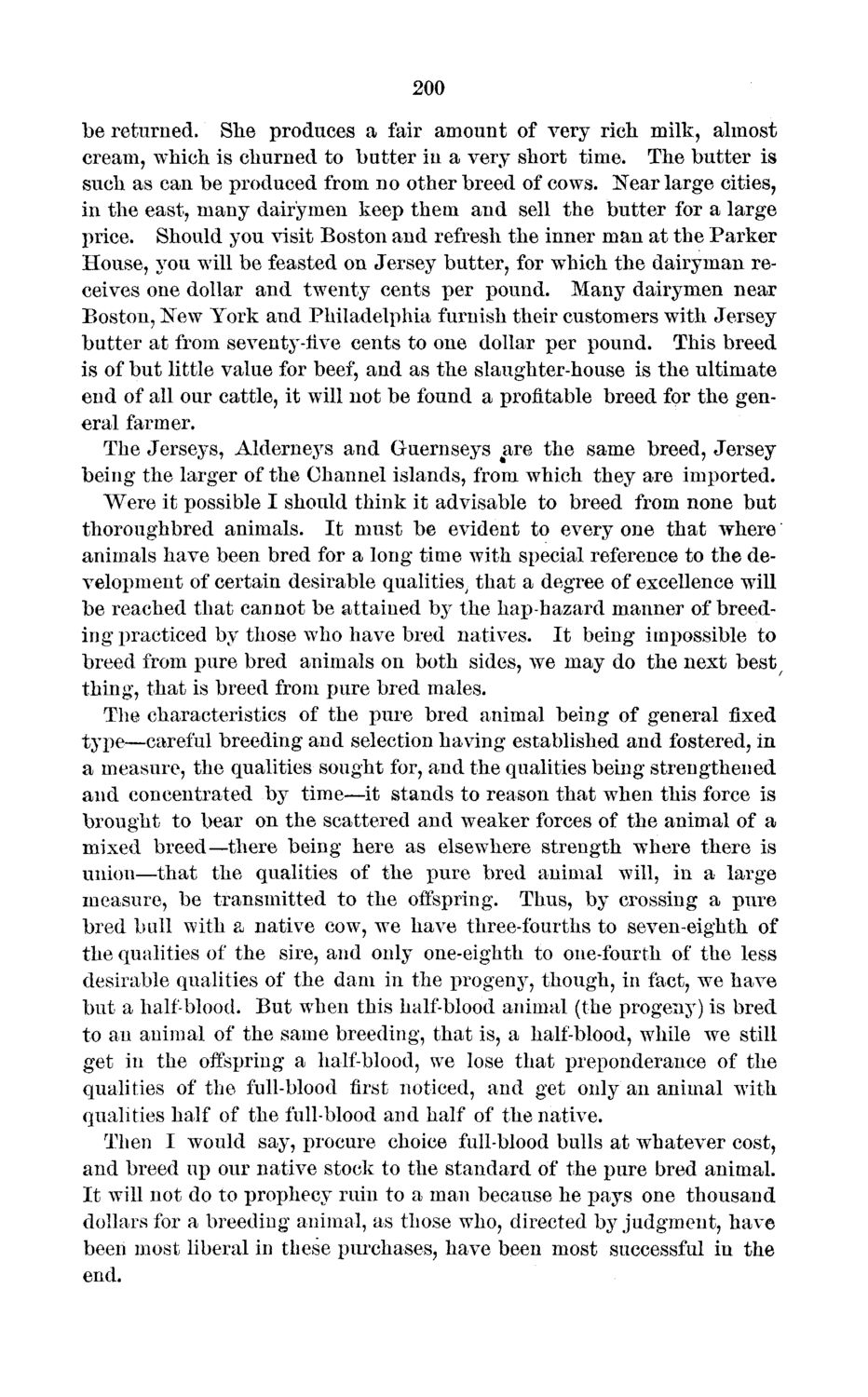| |
| |
Caption: Board of Trustees Minutes - 1873
This is a reduced-resolution page image for fast online browsing.

EXTRACTED TEXT FROM PAGE:
200 be returned. She produces a fair amount of very rich milk, almost cream, wilich is churned to butter in a very short time. The butter is such as can be produced from no other breed of cows. Near large cities, in the east, many dairymen keep them and sell the butter for a large price. Should you visit Boston and refresh the inner man at the Parker House, you wrill be feasted on Jersey butter, for which the dairyman receives one dollar and twenty cents per pound. Many dairymen near Boston, New York and Philadelphia furnish their customers with Jersey butter at from seventy-live cents to one dollar per pound. This breed is of but little value for beef, and as the slaughter-house is the ultimate end of all our cattle, it will not be found a profitable breed for the general farmer. The Jerseys, Alderneys and Guernseys are the same breed, Jersey being the larger of the Channel islands, from which they are imported. Were it possible I should think it advisable to breed from none but thoroughbred animals. It must be evident to every one that where animals have been bred for a long time with special reference to the development of certain desirable qualities, that a degree of excellence will be reached that cannot be attained by the haphazard manner of breeding practiced by those who have bred natives. It being impossible to breed from pure bred animals on both sides, we may do the next best x thing, that is breed from pure bred males. The characteristics of the pure bred animal being of general fixed type—careful breeding and selection having established and fostered, in a measure, the qualities sought for, and the qualities being strengthened and concentrated by time—it stands to reason that when this force is brought to bear on the scattered and weaker forces of the animal of a mixed breed—there being here as elsewhere strength where there is union—that the qualities of the pure bred animal will, in a large measure, be transmitted to the offspring. Thus, by crossing a pure bred bull with a native cow, we have three-fourths to seven-eighth of the qualities of the sire, and only one-eighth to one-fourth of the less desirable qualities of the dam in the progeny, though, in fact, we have but a half-blood. But wThen this half-blood animal (the progeny) is bred to an animal of the same breeding, that is, a half-blood, while we still get in the offspring a half-blood, we lose that preponderance of the qualities of the full-blood first noticed, and get only an animal with qualities half of the full-blood and half of the native. Then I would say, procure choice full-blood bulls at whatever cost, and breed up our native stock to the standard of the pure bred animal. It will not do to prophecy ruin to a man because he pays one thousand dollars for a breeding animal, as those who, directed by judgment, have been most liberal in these purchases, have been most successful in the end.
| |